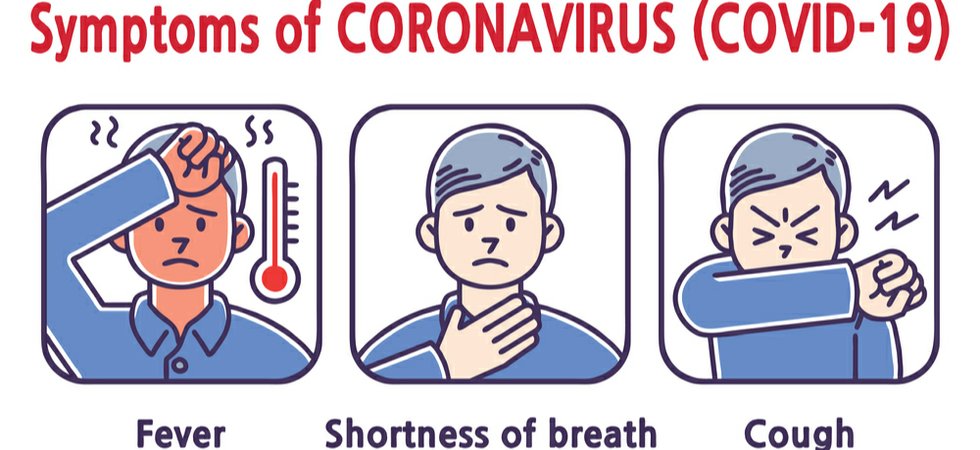Coronavirus, also known as COVID-19, is caused by a virus called SARS-CoV-2. The virus primarily spreads through respiratory droplets when an infected person coughs, sneezes, or talks. It can also spread by touching a surface or object that has the virus on it and then touching one’s face and through close contact with an infected person. The most common symptoms of coronavirus include fever, dry cough, and shortness of breath.
Other symptoms may include fatigue, body aches, and loss of taste or smell. Some people may be asymptomatic or have very mild symptoms. However, the virus can lead to severe illness or death, particularly in older adults or people with underlying health conditions.
What started as a small cluster of unexplained diseases in a city in central China has spread around the globe. The new coronavirus was discovered in the very last month of 2019. Yet, it has already caused the deaths of over 705,000 individuals and illnesses in more than 18 million people around the planet.
Although most cases are considered minor, health experts report that a great deal is still unknown about the virus.
What is Covid-19?
Officially referred to as severe Post-Acute Covid-19 Syndrome is a virus that causes severe respiratory illness.
This particular virus is a member of a wider family of viruses known as coronavirus. Only human coronaviruses are recognized as the causative agents of respiratory illnesses, even though coronaviruses may infect both animals and humans. The COVID-19 virus has several different genetic permutations, which are variants.
Variants can influence how the virus is transmitted, the severity of infection, and the degree of protection afforded by prior infection, vaccinations, or therapies.
Various outbreaks of infectious diseases have been traced back to viruses that originated in birds, pigs, bats, and other animals but evolved to become deadly to people. The research is still ongoing, and more investigation may show how and why the coronavirus developed to produce pandemic sickness.
What can cause Covid-19?
The transmission danger increases in any circumstance where individuals are forced to remain in close quarters with one another for extended periods.
Indoor places, particularly those with inadequate ventilation, provide more danger than their outside counterparts. Singing and heavy breathing during exercise are two activities that enhance the risk of transmitting a disease because they both cause more germs to be exhaled from the mouth.
These viruses are symbiotic with the animals; however, they do not infect them. Occasionally, the virus jumps to a new host animal. While infecting a new species, the virus might undergo mutation, and the virus has the potential to evolve in a way that it may infect humans.
COVID-19 is spread by direct contact with the virus. This contact may occur through the eyes, nose, or mouth and your body then directs it to the back of your throat and nasal cavities. It then proliferates inside the cells attached to it and spreads into the lung tissue. The virus may then go to other organs or tissues.
Symptoms of Coronavirus

The 2019 coronavirus illness (COVID-19) has an incubation period of 2-14 days, during which the symptoms may manifest.
The duration between exposure and the onset of symptoms is known as the incubation period. Symptoms of Coronavirus may vary from minor to life-threatening. Some individuals can transmit the disease while showing no symptoms at all. Around a week following the onset of symptoms, some patients may develop a worsening of symptoms, such as shortness of breath and pneumonia.
Common Symptoms of Coronavirus may include:
- Fever
- Sore throat
- Chills
- Cough
- Losing smell and taste sense
Less common Symptoms of Coronavirus also include:
- Chest pain
- Nausea/ Vomiting
- Muscles aches
Symptoms of Coronavirus might last longer than four weeks for some persons. After undergoing COVID-19, some children develop multisystem inflammatory syndrome, which may damage several organs and tissues.
Do not wait to seek medical attention if you have experienced any of the Symptoms of Coronavirus or had any interaction with someone diagnosed with this illness. There is a good chance that your doctor may advise you to be tested for COVID-19. Medical attention should be sought promptly if Symptoms of Coronavirus are present. Call beforehand if you need to go to the hospital so that staff can take precautions to prevent the spread of infection.
Treatments and precautions for Covid-19
Treatments for COVID are in the drug testing and development stages. Remdesivir and Bamlanivimab are two antibodies for COVID-19 that Health Canada has authorized. Each of the four main categories of vaccines—whole virus, protein subunit, viral vector, and nucleic acid (RNA and DNA)—protects in its unique manner by inducing immunity in the recipient. Vaccines vary in the number of doses needed to complete the main series.
After the first vaccination protective effects have worn off over time, a COVID booster injection is administered. Optional but helpful, booster shots help keep people well protected against severe coronavirus disease.
A large percentage of people with minor illnesses get well without medical intervention. However, some drugs may help ease the discomfort associated with COVID-19, and your doctor may prescribe them. When it comes to COVID-19 therapies, availability and eligibility requirements may differ from one province to the next. Complete immunization against COVID-19 is suggested to reduce the likelihood of contracting the virus and associated effects from severe infection. Additional COVID-19 vaccine doses may be recommended by your local public health authority to improve protection and slow the spread of the virus.
One of the essential things you can do to protect yourself from contracting COVID-19 is to practise proper hand hygiene since the virus is communicated mostly via direct human contact.
You should always wear a face mask, particularly in public places. If your hands are dirty, don’t touch your face. By staying away from sick individuals, you may lessen the likelihood of getting the illness. It’s important to protect others from becoming ill by covering your mouth and nose when you sneeze or cough.
The spread of viruses may be slowed or stopped by increasing the efficiency of ventilation and filtration systems, which flow air in and out of space and collect dust and other particles from the air.
To prevent the transmission of the virus, it is recommended that those infected remain at home for at least five days (perhaps longer, depending on their condition) and wear a mask whenever they are inside a building with other people.
Conclusion
Since the virus is so young, people have very little protection against it. This facilitates the virus’s rapid global dissemination from individual to individual. People older than 65 or those with a chronic health condition should take particular precautions to prevent exposure to COVID-19 because of their increased vulnerability to the virus.
Contact with long covid clinics to establish when and where you should go for treatment if you think you have Symptoms of Coronavirus or proven exposure to someone who has the virus.






